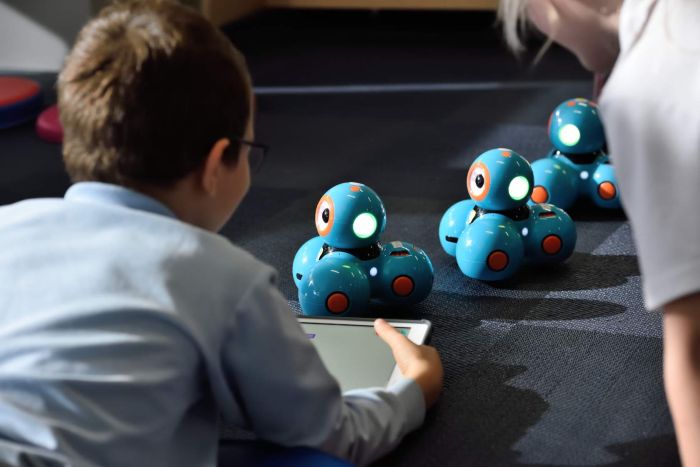Universal Design for Learning
In today’s dynamic and diverse classrooms, the traditional ‘one size fits all’ approach is no longer sufficient. Modern research has revealed that each student brings unique strengths and challenges, demanding a more adaptable and inclusive educational model.
Universal Design for Learning (UDL) is a forward-thinking and research-based framework that redefines how we approach teaching and learning. UDL principles emphasise the need to provide multiple means of representation, engagement, and expression, thereby accommodating a wide range of learning preferences and abilities. Studies have demonstrated that UDL improves student outcomes by reducing barriers to learning and providing more personalised support.
Rather than attempting to ‘fix’ the student to fit a standardised curriculum, UDL advocates for adapting the curriculum to meet the diverse needs of learners. This approach ensures that all students, regardless of their abilities or disabilities, have the opportunity to succeed.
This course integrates the latest research findings and practical strategies to help educators implement UDL in their classrooms and schools. Participants will learn how to design flexible curricula, select effective materials, and use diverse assessment methods to support student progress.
- Course Overview
- Course Content
- Assessment and Rewards
- Tutors and Support
- FAQs
About the course
Through innovative uses of modern multimedia technology and contemporary research in cognitive neurosciences, Universal Design for Learning (UDL) has developed a new field of teaching methods. This course provides an in-depth exploration of resources and adaptations designed for diverse student groups, illustrating how these can be effectively integrated into classroom environments and curricula. By adopting a UDL perspective, educators can create flexible learning environments that enhance learner engagement and autonomy. Lessons structured around the UDL framework include well-defined objectives, effective strategies, diverse materials, essential tools, and inclusive assessments, thereby supporting a wide range of learners.
Who is this course for?
This course is designed for teachers, SNAs and those working with learners in various contexts. It is also of interest to curriculum designers, psychologists and educational professionals who want to learn more about the application of universal design for learning in their role of practice and context.
Approved by the Department of Education
This course is approved by the Department of Education.
Three EPV days will be allowed for primary school teachers who take the course during the summer term. Please note this provision applies only to the summer term as per Department guidelines.
We have four terms a year: Autumn, Spring, May/June & Summer.
This course begins with an overview of Universal Design for Learning (UDL), presenting international perspectives and exploring the connection between Universal Design (UD) and UDL. We examine the significant contributions of Dr David Rose from the Centre for Applied Special Technology (CAST) and provide an overview of UD within the Irish context, highlighting the work of the Centre of Excellence in Universal Design (CEUD). Additionally, we consider the School Self-Evaluation Draft Guidelines (DES), the National Council for Curriculum & Assessment (NCCA), and the Professional Development Service for Teachers (PDST), particularly in relation to information and communications technology (ICT).
In Module Two, the focus shifts to the pedagogical foundations of UDL and its implications for curriculum design, learning, and assessment. Module Three, titled “From Principle to Practice,” showcases best practices for implementing UDL to enhance student achievement and foster inclusion. Technology’s potential to support and extend learning opportunities is the central theme of Module Four, where we explore the use of Assistive Technology (AT) to eliminate barriers to accessing the curriculum. Finally, Module Five addresses assessment in the UDL classroom, outlining the 3 Block Model and offering UDL toolkits and protocols for effective assessment practice.
Key highlights
- By understanding the “Why,” the “What,” and the “How” of learning, educators can design classrooms, materials, and methods to accommodate all learners.
- Designing classes with UDL principles from the outset eliminates the need for retrofitting.
- Recognising that every student has unique learning needs is crucial to 21st-century education. How we accommodate these needs is vital for effective learning.
- Many students benefit from alternative learning methods, such as auditory or visual approaches. UDL embraces diversity as the norm and promotes proactive planning to meet the varied needs of students.
- Enjoy rich opportunities for collaboration with our online network of learners and tutors.
- Save and print course materials and resources for future reference.
Interactive learning assignments accompany each module, providing engaging and practical applications of the course content. Additionally, each student is required to complete a Reflective Assignment and maintain a CPD record.
Upon completion of the course, you will receive a Certificate of Continuing Professional Development and a comprehensive Learning Log of your work. These can be included in your CPD portfolio to demonstrate your ongoing professional growth and learning achievements.
Our tutors are highly qualified experts in positive psychology, resilience, and wellbeing, and are also actively engaged in research on Universal Design for Learning (UDL) and educational inclusion. This dual focus ensures that you receive the most up-to-date and relevant guidance throughout your online studies. Their ongoing research and expertise provide you with valuable insights from the cutting edge of educational innovation.
For technical assistance, our dedicated team of qualified learning technologists is available to support you by telephone or email. They are committed to providing prompt and effective help, ensuring a smooth and seamless learning experience.
Our courses are designed for educators, special needs professionals, parents and anyone with an interest in special needs education or positive psychology. Our courses are particularly suitable for those who require flexibility and freedom in accessing professional education and updating their skills.
Our courses are 20 hours long, fully online and can be completed entirely at your own pace over the term. It will be possible to download each module and print it off to study in your own time offline if you prefer.
Our courses run four times a year, in Spring, May/June, Summer & Autumn.
You can enrol online here or by calling +35316510618. Due to the self paced, flexible nature of the course we accept enrolments right up to 1 week before each term ends.
No, the courses are very user friendly and the skills necessary are quite basic and easily learned. We will be available to provide any technical assistance you need during the course.
You will need a computer with e-mail and access to the internet. Everything else you need for the course is provided though our integrated learning management system – this is user-friendly and easy to navigate.
These courses are suitable for people who have busy schedules but still want the opportunity to receive high quality professional development at a time that suits them.
We provide all the supports necessary to make this online learning experience a success for you. You will have access to our expert tutors who are available via email throughout the duration of your course during working hours from Monday to Friday. Technical support is also available through email and we can also be contacted by telephone at +35316510618.
Our learning management system logs all student activity online. This tells us if a student has accessed all the course material.
At the end of each module we ask students to contribute to an online forum for that module.
At the end of the entire course students are required to write a reflective assignment on the learning they gained from the course.
These activities are included in your 20 hours of study time.
Following successful completion of your course you will receive a Certificate of Continuing Professional Development which you can include on your CV.
WHAT OUR STUDENTS SAY:
“I found the course really informative with excellent resources and ideas. It really made me think outside the box when preparing and delivering my classes. I will be exploring and adapting the UDL principles in my classroom going forward.”
-
COURSE DATES
SPRING TERM
9th February - 5th April 2026
LAST ENROLMENT DATE
3rd April 2026
SPRING TERM
9th February – 5th April 2026
LAST ENROLMENT DATE
3rd April 2026
-
DURATION
20 hours of self paced study any time during the term
-
APPROVED BY

-
FEES
€99.00





